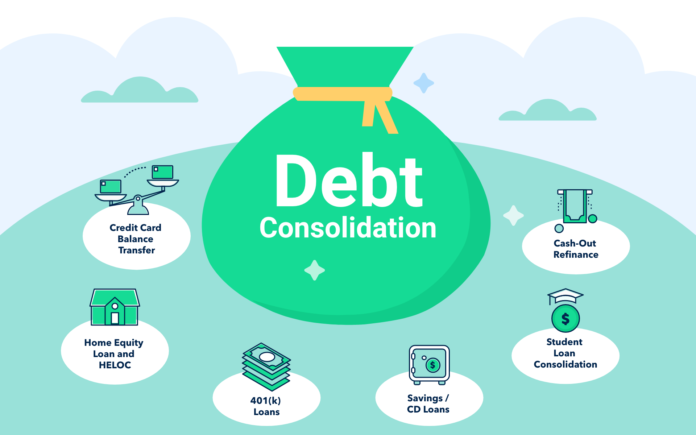In the world of personal finance, managing debt is often a challenging yet crucial task that can significantly influence one’s financial stability and peace of mind. Many people find themselves struggling with debt management, not realizing that common strategies they employ might actually be counterproductive.
A good solution is to keep up with most recent finance news where you can find valuable sources and insights on better investments, dealing with debt, and more.
This article provides eight actionable tips, rooted in expert financial advice, to help you navigate and optimize your approach to handling debt.
-
Prioritize High-Interest Debts

The cost of debt is largely determined by its interest rate. High-interest debts, such as credit card balances and payday loans, can rapidly accumulate, making them particularly burdensome. Prioritizing these debts for repayment is a strategic move that can save you a significant amount of money in the long run. By allocating extra funds to the highest interest rates first, you minimize the total interest paid over time.
This method, often part of the ‘avalanche’ approach, allows you to tackle debts more efficiently. The satisfaction of paying off high-interest debts can also provide a psychological boost, which is important for maintaining momentum in your debt management journey. It’s crucial to assess all your debts, focusing on the interest rates to devise a repayment plan that targets these high-cost liabilities first while maintaining minimum payments on others.
-
Create a Realistic Budget

A well-crafted budget is foundational to effective debt management. It involves a thorough analysis of your income versus your expenses to identify how much you can realistically allocate to debt repayment without compromising your basic needs. This process helps you live within your means and avoid accumulating new debt.
A realistic budget also provides clarity on possible financial adjustments, like reducing discretionary spending or increasing income through side gigs. The key is to ensure that the budget is not only practical but also sustainable over time, allowing for adjustments as financial situations change. Regular budget reviews are essential to adapt to new financial circumstances and opportunities for further debt reduction.
-
Use the Avalanche or Snowball Method

These are two popular strategies for paying down debt. The avalanche method focuses on paying off debts with the highest interest rates first, as mentioned earlier. This approach minimizes the amount of interest paid over time and is generally faster and cheaper in the long run. Conversely, the snowball method involves paying off the smallest debts first, regardless of interest rate, gaining momentum as each balance is cleared.
This method can be particularly motivating for individuals who need small victories to stay committed to their debt repayment plan. Choosing between these methods depends on your personal financial situation and which strategy best aligns with your motivational needs and financial goals.
-
Consolidate Debts Where Possible

Debt consolidation involves combining multiple debts into a single loan with a lower interest rate. This simplification can lead to significant savings on interest charges and lower monthly payments. It also makes managing your debt easier since you only have one payment to worry about, reducing the likelihood of missed payments and the stress associated with juggling several creditors. When considering consolidation, it’s important to compare the terms of the new consolidation loan to your existing debts to ensure it actually reduces your overall costs and accelerates your debt repayment. This strategy is particularly effective for those with multiple high-interest loans or credit card debts.
The Bottom Line
Effective debt management requires a strategic approach and disciplined execution. By prioritizing high-interest debts, creating a realistic budget, choosing the right repayment method, and considering debt consolidation, you can reduce your debt more efficiently and regain control of your financial health.







